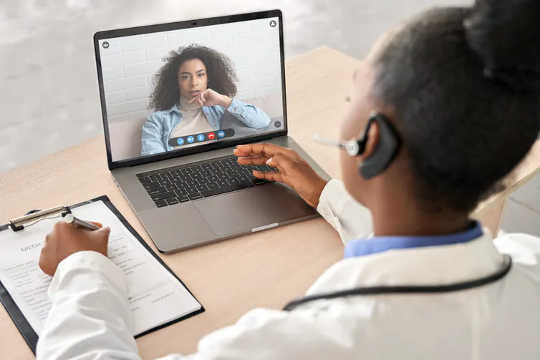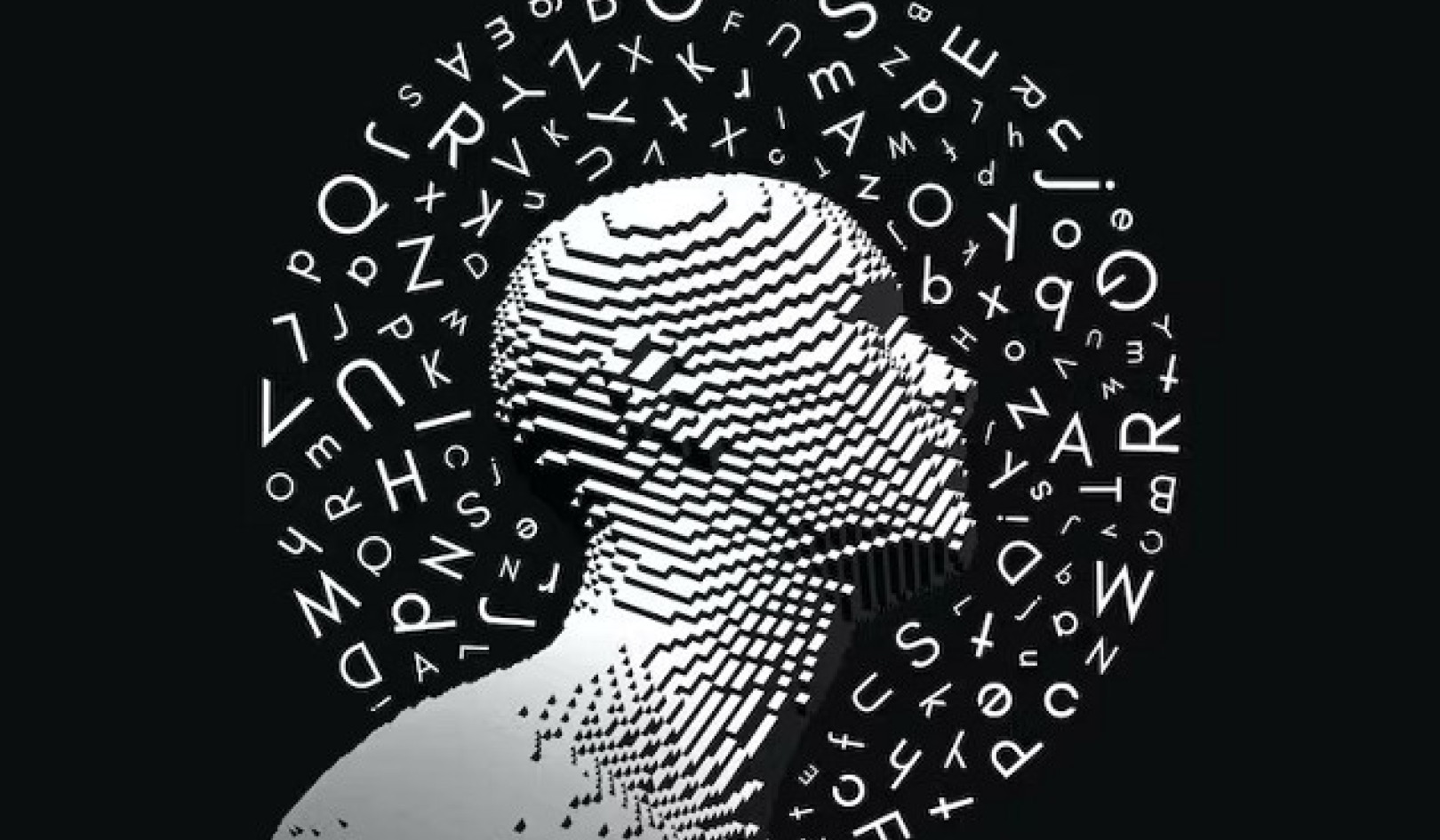
Shutterstock
Last week, the Australian government announced it will provide ten extra Medicare-subsidised psychological therapy sessions for Australians in lockdown areas due to COVID-19.
In such a stressful time, many people are experiencing poorer mental health, and some need additional support. However, our mental health system is complex and fragmented, so it can be challenging to find the care you need.
Here’s how to start seeing a therapist if you never have before.
I’ve seen a lot of emphasis on checking up on friends who struggle with mental health in Melbourne, but also look out for those who may need to find services for the first time, may not realise it, and have no support in place at all. I imagine it would be a tough time to start.
— Maxine Beneba Clarke (@slamup) August 3, 2020
What is a mental health treatment plan?
Under Medicare, you can already access ten subsidised sessions per calendar year with a registered psychologist, social worker or occupational therapist. Twenty sessions are now subsidised “for anybody who has used their initial ten services in a lockdown area under a public health order,” said Federal Health Minister Greg Hunt. Currently this includes all of Victoria.
But to get access to these sessions, first you need to get a mental health treatment plan from your GP. This involves an assessment of your physical and mental health, and a discussion of your particular needs. The GP then helps you decide what services you need.
All GPs who write mental health treatment plans have undergone additional training in mental health. There are also plenty of GPs with further interest and expertise in this area. It can be helpful to ask for recommendations from friends and family if you are unsure who to see.
Physical and mental health issues frequently overlap, so a visit to a GP is an opportunity to assess any physical issues that may impact mental health as well. The GP should explore a person’s strengths and vulnerabilities, before agreeing on a plan for care.
Generally, this process takes 30-40 minutes, so it’s important to book a longer consultation with your doctor. At the end of this consultation, you can have a copy of the plan, and it’s also sent to the therapist of your choice. Once the mental health plan is billed to Medicare, you can get subsidised sessions with your preferred therapist. You will need to make the appointment with the therapist, but GPs or practice nurses will often help make this appointment for patients who are feeling too unwell to manage this phone call.
Using telehealth
Telehealth enables you to get care from your GP by phone or video. The Medicare requirements of telehealth are changing rapidly, so check when you make your appointment to see if telehealth is available and to make sure you will be eligible for a Medicare rebate for this consultation.
At the moment, to get a Medicare rebate for telehealth, you must have seen the GP in their practice face-to-face at some point in the past 12 months.
But this requirement doesn’t apply to:
-
children under 12 months
-
people who are homeless
-
patients living in a COVID-19 impacted area
-
patients receiving an urgent after-hours service
-
patients of medical practitioners at an Aboriginal Medical Service or an Aboriginal Community Controlled Health Service.
So if you live under the Victorian lockdowns, you can get a mental health care plan via telehealth, even if you have not seen the GP before.
Once you’ve got your care plan, you can do the therapy sessions via telehealth too. And you can now claim them under Medicare (though this wasn’t the case before COVID-19).
 Many GP clinics and psychologists are now conducting sessions via phone or video call. Shutterstock
Many GP clinics and psychologists are now conducting sessions via phone or video call. Shutterstock
Choosing a therapist
Your GP can help you choose a therapist, but it’s important to think about what you need from a psychologist. Psychological care can range from coaching when life is particularly challenging, to deep and complex work helping people manage mental health disorders or trauma.
Also consider the sort of person you prefer to see. Some people prefer practitioners from a particular cultural group, gender or location. You may have a preference for a very structured, problem-solving style, or you may want someone with a more conversational style. You may also have a preference for the type of therapy you need. If your GP can’t recommend someone appropriate, or if you are having trouble finding someone who is available to meet your needs, the Australian Psychological Society has a searchable database of therapists.
Psychologists, occupational therapists and social workers must be registered under Medicare to provide these services, so it’s important to check this with the receptionist when you make your appointment. The Medicare rebate varies according to the qualifications of the practitioner, and a psychologist’s fees may be well above the rebate, so clarify your expected out-of-pocket expenses when you make an initial appointment.
A clinical psychologist has additional training, and will give you a rebate of around $128, whereas a general psychologist has a rebate of around $86. Remember that a psychologist may charge well above the rebate, so you may be out of pocket anywhere from nothing to over $200.If you decide seeing a therapist under a mental health plan is not the right option for you, there are some alternatives. Some non-government organisations, like Headspace, provide counselling services through Medicare for no additional cost, as do some schools. Some workplaces also have psychological options like the Employee Assistance Program.
Some people benefit from online programs that teach psychological techniques. Head to Health also provides a searchable database of evidence-based sites to explore. Most are free or very low cost.
If you are very unwell, local mental health services attached to public hospitals can provide crisis support and referral.
These are difficult times.
It’s important to at least discuss your situation with someone you trust if you’re having difficulty sleeping, your mood is affecting you or your family, or you’re having frightening or worrying thoughts. Your GP is a good, confidential first port of call.
About the Author
Louise Stone, General practitioner; Clinical Associate Professor, ANU Medical School, Australian National University
This article is republished from The Conversation under a Creative Commons license. Read the original article.

Related Books:
The Body Keeps the Score: Brain, Mind, and Body in the Healing of Trauma
by Bessel van der Kolk
This book explores the connections between trauma and physical and mental health, offering insights and strategies for healing and recovery.
Click for more info or to order
The Boy, the Mole, the Fox and the Horse
by Charlie Mackesy
This book is a beautifully illustrated story that explores themes of love, hope, and kindness, offering comfort and inspiration for those struggling with mental health challenges.
Click for more info or to order
Anxiety Relief for Teens: Essential CBT Skills and Mindfulness Practices to Overcome Anxiety and Stress
by Regine Galanti
This book offers practical strategies and techniques for managing anxiety and stress, focusing specifically on the needs and experiences of teenagers.
Click for more info or to order
The Body: A Guide for Occupants
by Bill Bryson
This book explores the complexities of the human body, offering insights and information about how the body works and how to maintain physical and mental health.
Click for more info or to order
Atomic Habits: An Easy & Proven Way to Build Good Habits & Break Bad Ones
by James Clear
This book offers practical strategies for building and maintaining healthy habits, focusing on the principles of psychology and neuroscience.
_health























